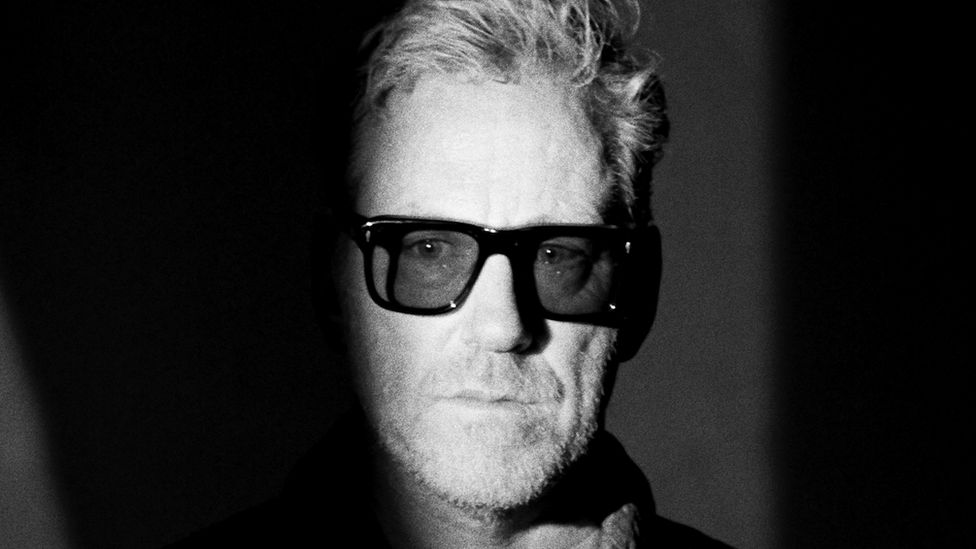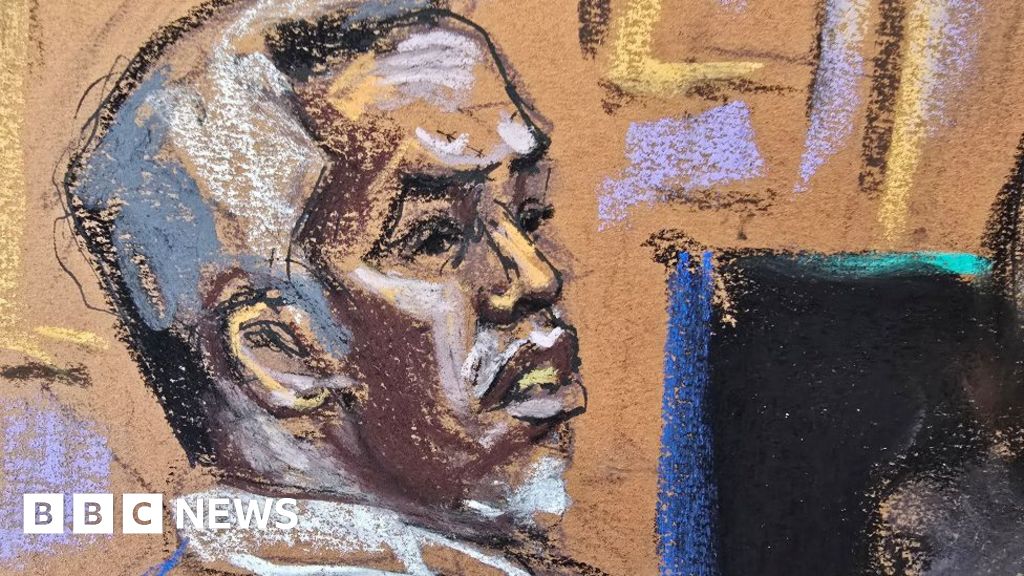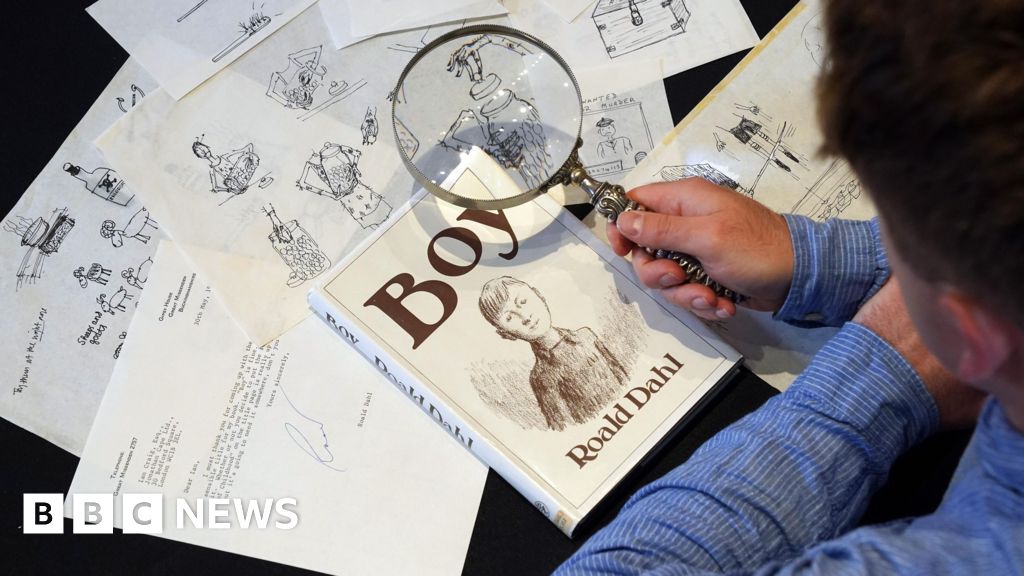ARTICLE AD BOX
 Image source, Steve Gullick
Image source, Steve Gullick
David Holmes is a Belfast producer, DJ and songwriter
By Paul Glynn
Entertainment reporter
In David Holmes's recent single, Necessary Genius, he gives a shout-out to all the "dreamers, radicals, outcasts and misfits".
Samuel Beckett, Terry Hall and Nina Simone all make his melodic list, as does Tony Wilson.
But the Belfast producer saves one of his own personal favourites, Sinead O'Connor, until the very last line: "I believe in Sinead O'Connor / I believe in refugees."
"I started thinking about, 'well, who do I believe in?'," explains Holmes, who also produced the late Irish singer's as-yet unreleased final album before her death aged 56, earlier this year.
"I just tried to make it work as a song, there was no master plan. But I wrote that song before Sinead passed away. I actually sent it to her and she was really thrilled."
O'Connor's response, he says, was to send back a smiley face, before checking that one of the other names listed, Nina Lucia, was indeed Holmes's daughter.
This YouTube post cannot be displayed in your browser. Please enable Javascript or try a different browser.View original content on YouTube
The BBC is not responsible for the content of external sites. YouTube content may contain adverts.
Skip youtube video by David Holmes
Allow YouTube content?
This article contains content provided by Google YouTube. We ask for your permission before anything is loaded, as they may be using cookies and other technologies. You may want to read Google’s cookie policy, external and privacy policy, external before accepting. To view this content choose ‘accept and continue’.
The BBC is not responsible for the content of external sites. YouTube content may contain adverts.
"I was just trying to be really honest," he adds of the tributary track, which features on his first solo album in 15 years, Blind on a Galloping Horse.
"I love Sinead. We had a brilliant, beautiful experience making a record that I hope the world will hear next year some time."
"I've heard people call Sinead mad, bonkers blah blah," he continues. "Sinead was one of the most fiercely intelligent people I've ever met, and she was far from mad. She had some mental health issues yes, but she wasn't mad.
"She was a very sensitive, beautiful person. She used to ring me up and say, 'how are you doing? I think you're working too hard'.
"So do I believe in Sinead O'Connor? Absolutely."
Sinead O'Connor in her emotive, famous music video for Nothing Compares 2 U
The pair originally met at the funeral of another Irish music star, Shane McGowan.
While the album they worked on together at his Belfast studio has yet to surface, one new track, The Magdalene Song, did recently appear in the finale of The Woman In the Wall - the BBC mystery drama, starring Ruth Wilson, about the trauma of a woman who spent time in Ireland's controversial Magdalene Laundries.
Holmes says O'Connor, who gave her permission for it to be used, was perfect for the series; as she was "very outspoken about the Catholic church" and had "spent time in a care home that was linked to a laundry". It meant she had first-hand experience, he says.
The producer, who notes how he always works best to moving images - like he did for director Steven Soderbergh's hit Ocean's trilogy movie score, reworked a stripped-back organ version of the Magdalene Song to fit the end of the series.
"It's a song of two parts," he says. "The first part is heart-breaking. But then in classic Sinead [style], it comes to a certain point where the emotion of the song completely flips and it becomes this song of defiance.
"She's talking about having her children taken off her because of the woman that she was, and then she goes, 'but that's not gonna happen, I'm gonna live'.
"That was the genius of that song and so it was perfect for the end of the series."
Image source, Steve Gullick
Image caption,David Holmes has worked with singers Sinead O'Connor, Noel Gallagher and filmmakers Steven Soderbergh, Steve McQueen and Michael Winterbottom, as well as producing the Killing Eve soundtrack
Another woman close to Holmes's heart, his god-daughter Raven Violet, provides the vocals for his own new glam electro-disco LP.
She is "like Michelle Phillips from the Mamas and Papas, but with attitude", he smiles.
The Times said the album contains "atmospheric walls of sound, euphoric psychedelia and hooky choruses".
Since Holmes's last album, 2008's The Holy Pictures, the Bafta and Ivor Novello-winning creative has been busy providing the killer soundtrack for the Killing Eve series - alongside his band the Unloved - as well as records for the likes of O'Connor and Noel Gallagher.
The ex-Oasis man once called him "the best producer in the world" for having dragged him out of his comfort zone, and the Mancunian has a co-writing credit on one new Holmes' track, It's Over, If We Run Out Of Love.
'Profoundly challenged'
The album, Holmes says, has been "growing for a long time", musically speaking, but the lyrical content of tracks like the ones mentioned above and Hope is the Last Thing to Die did not happen until lockdown.
"I had never written a song until I made the Holy Pictures, and what I realised was that I can't actually write words unless they mean something," he says. "Both of my parents had died and I felt it was my duty to pay tribute to them."
This time around, the government's handling of the pandemic, and refugees fleeing war-torn countries provided the emotional landscape, as well as his own mental health.
"I didn't really feel that I had anything to say until Covid happened," says Holmes. "I grew up in Belfast, I was getting into acid house when I was like 19, 20 in 1989. The last thing I wanted to talk about was the Troubles.
"I was actually sort of subliminally or subconsciously running away from it, and I felt like I was too young to have any real comment on it.
"Now as a grown man with a family of my own, I was profoundly challenged by what was going on during Covid and I was shocked by it, so I just started writing and a lot of stuff came out."
Opening track, When People Are Occupied Resistance Is Justified, features first-hand testimonies from a Palestinian ambulance driver as well as Ukrainian and Afghan refugees who have now found a home in Belfast. "That made me feel really very proud to be from where I'm from," he says, noting how there are Irish people (and pubs) dotted all over the globe.
Image source, Jimmy Turrell
Image caption,The album's cover art focuses on a picture, taken by street photographer Bill Kirk, of a couple embracing in the aftermath of a riot in 1970’s Belfast. Holmes believes it is the perfect visual metaphor for this collection of songs
Inspired by the "joy and heartbreak" of Northern Soul music, Holmes's album is "part protest album" but also "a real opportunity for me to deal with my own mental health issues".
He has a form of OCD called "pure obsession" which, he says, can cause negative thoughts to spiral.
He has dealt with it through his music, therapy and psychedelic therapy - "a really profound experience".
The only other non-Holmes original on his new record is a cover of an "amazing track" by another lost friend, Andy Weatherall, called I Laughed Myself To Sleep.
His fellow DJ and producer's remix work on Primal Scream's Screamadelica turned it into an era-defining dance-rock album, and earned the band the first Mercury Prize in 1992.
In his own younger days, Holmes ran one of Belfast's most revered club nights - Sugar Sweet - which brought acid house and rave culture to a city steeped in political turmoil.
The overwhelming feeling of "love" and sense of "possibilities" he experienced through the scene, that Weatherall helped bring to the masses, was "a real light bulb moment."
Holmes thinks that community spirit is at risk of having "disappeared down the [backside] of social media".
Image source, Getty Images
Image caption,Holmes's friend, fellow DJ and Screamadelica producer Andy Weatherall died in 2020 aged 56
Image source, PYMCA/Avalon/Getty
Image caption,Holmes's club nigh Sugar Sweet brought acid house and rave culture to a city steeped in political turmoil
Like O'Connor before him, Weatherall's maverick "genius" is confirmed and celebrated on wax on Holmes's roll-call of a lead single. "I believe in Weatherall."
"Andrew was a fantastic songwriter; a very intelligent, clever, inspiring, beautiful human being who had an incredible generosity of spirit and brains to burn," he says. "You'd leave Andrew's company and you'd just want to go and make something.
"He was someone who was very, very important in my life and development as a human being."
What is left then for the 54-year-old to develop, and believe in?
"Be positive, spread the love, do what I want to do... and be grateful for it."
David Holmes's album Blind on a Galloping Horse is out on 10 November. He will perform the following night in Todmorden.

 1 year ago
43
1 year ago
43








 English (US) ·
English (US) ·